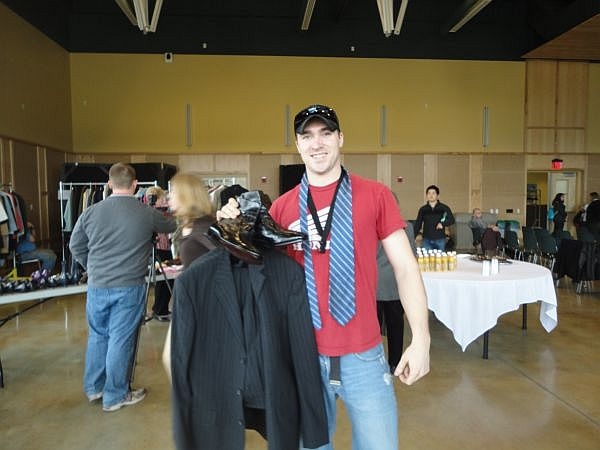
On Wednesday, we heard about efforts to create manufacturing jobs in the Northeast Kingdom. There is the sense that the area is on the cusp of something that could bring in more high tech jobs. But even now, manufacturers in the region are struggling to find qualified workers.
There’s a lot of history in the old St. Johnsbury building where Classic Designs is located. Like the hulking old lathes that shape wood into the table legs and other furniture parts the company makes.
"This technology is 130 years old. All this equipment is 130 years old," says Classic Designs CEO David Redmond, pointing to a line of machinery during a tour of the company.
David Redmond walks past the old machines that once did all of the work, to a single machine that uses CNC technology to produce more than half of what comes out of here now.
CNC stands for "computer numerically controlled." The old lathes at Classic Designs are time and labor intensive. The operator is like a mechanic, changing out knives and making adjustments.
By contrast, a CNC operator programs a computer that runs the machine. It’s a completely different skill set.
Redmond says yesterday’s mill worker doesn’t have the training to operate today’s machines, adding, "We have a lot of work to do in terms of retraining our current staff, to say nothing about what we need in the future as far as staffing. The only direction we can go is more CNC technology."
It’s a similar story at Tivoly Incorporated, a French owned company that employs 160 people at its plant in Derby Line. The company makes tools and dies used by other manufacturers.
Like Classic Designs, Tivoly needs workers trained to run CNC technology.
Plant Manager Scott Gowdy and Human Resources Manager Janice Lamoureux say there isn’t a ready pool of people in the area. So the company trains workers from the ground up and hopes it pays off in the end.
"It’s all tribal learning. We teach in-house," says Gowdy.
According to Lamoureux, "Training is huge. You hate to say it, but you’re bringing people in right out of high school or have been a year or two on a farm, or whatever."
And, adds Gowdy, "You could have a year into somebody and discover they just can’t meet the qualifications that you have."
The gap between the skills workers have and what manufacturers need exists in other places, but it’s much more pronounced in the Northeast Kingdom. Only about one in five of the region’s adults have some sort of post-secondary education, compared to a state average of one in three.
"The factory worker today has to have at least an associate’s of applied science and be able to program the computers they’re using on the shop floor," says Ann Nygard, director of the Center For Rural Entrepreneurship at Lyndon State College.
The college is also home to the Leahy Center for Rural Students. Together they’re trying to get more Northeast Kingdom high school graduates to go on to 2- or 4-year colleges, and give them hands-on job training. The focus is on meeting the needs of the region’s manufacturers.
"The owners of these businesses are coming to us and saying, ‘I’m turning down work because I don’t have any confidence that I can find the skilled workforce that I need to be able to accept these contracts," says Steve Gold, Lyndon State’s interim president and the former commissioner of the Department of Employment and Training.
The college has started a CNC training program in conjunction with Northern Community Investment Corporation in St. Johnsbury.
But educating and training young workers doesn’t guarantee they’ll stay in the Kingdom.
"People that do have expertise and are looking for good paying jobs are not finding them in the Northeast Kingdom easily. Over the last three years or four years have gone elsewhere," says Classic Designs CEO David Redmond.
The flight of young workers is a statewide problem. But there’s reason to believe it’s more pronounced in the Northeast Kingdom.
Lyndon State College freshman Dayna Roy of West Burke said she’d like to stay close to home after she graduates, but she’s concerned about the job prospects in her field.
"I think it would be tougher for me to do graphics design around here," she says. "I would probably have to move out of state to start my business."
Senior Tommy Russell from Barton is of a similar mind.
"I could see myself living here, growing a family, raising children," Russell says. "But from a business standpoint, I’d much rather go out of state, work for a while and come back."
Russell’s approach isn’t necessarily a bad thing, as far as Lyndon interim president Steve Gold is concerned.
Gold says more than other places in Vermont, people feel a strong bond with the Northeast Kingdom; they’ll come back once the job prospects improve. And he says that’s starting to happen.
"People are beginning to see that there are ways that we can actually work together to address these issues," Gold says. " That’s a big sea change from just wringing your hands and saying, ‘The kids are all leaving and we don’t have the workforce we need.’ And, ‘Isn’t it awful.’"
Gold says building a well trained workforce in the Kingdom is a long term effort that’s only, as he puts it, "at the end of the beginning."